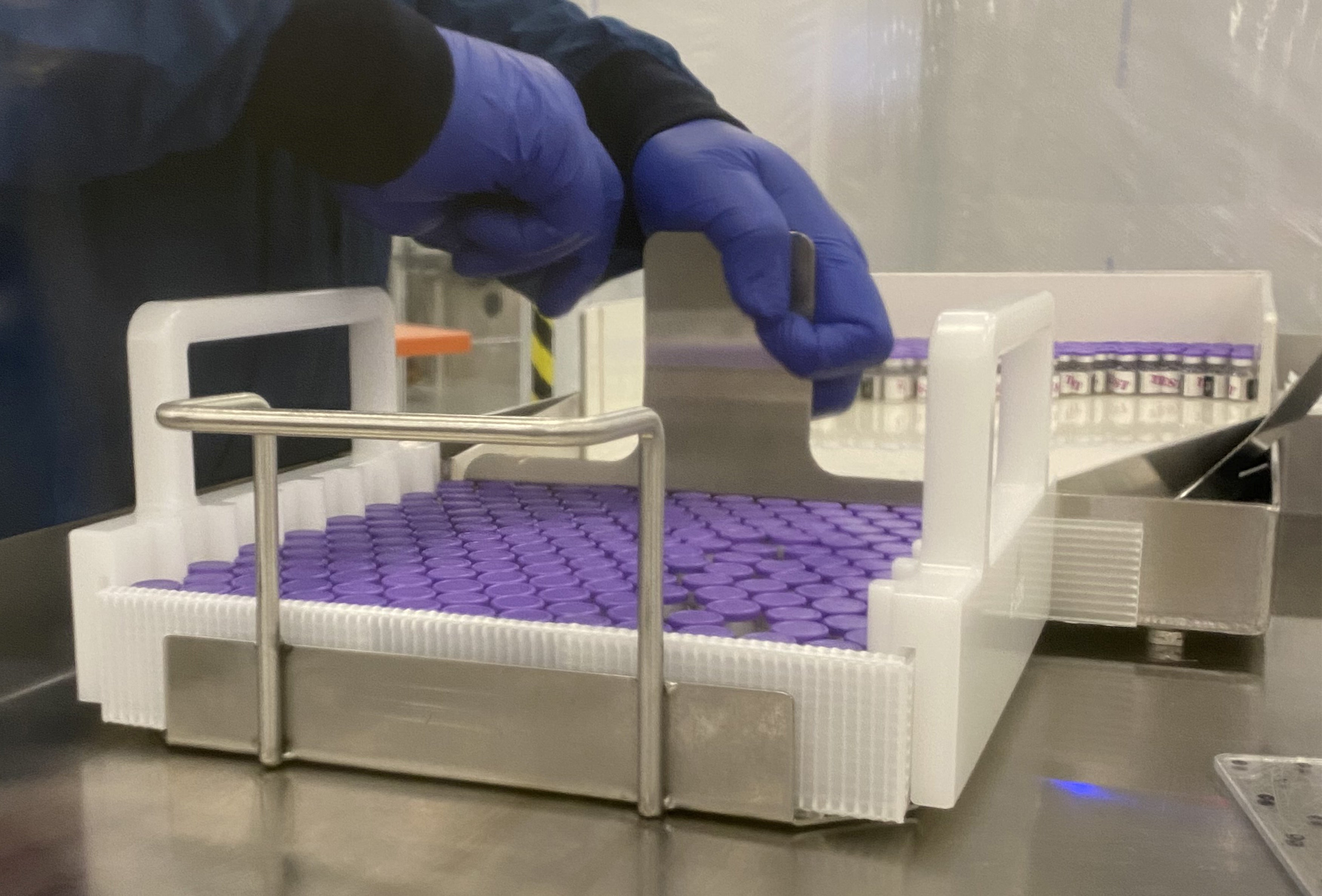First US Covid vaccines should go to health workers and nursing home residents, CDC panel says
Drugmakers estimate 22 million doses will be available in January, as states determine how to distribute first rounds

Your support helps us to tell the story
From reproductive rights to climate change to Big Tech, The Independent is on the ground when the story is developing. Whether it's investigating the financials of Elon Musk's pro-Trump PAC or producing our latest documentary, 'The A Word', which shines a light on the American women fighting for reproductive rights, we know how important it is to parse out the facts from the messaging.
At such a critical moment in US history, we need reporters on the ground. Your donation allows us to keep sending journalists to speak to both sides of the story.
The Independent is trusted by Americans across the entire political spectrum. And unlike many other quality news outlets, we choose not to lock Americans out of our reporting and analysis with paywalls. We believe quality journalism should be available to everyone, paid for by those who can afford it.
Your support makes all the difference.Long-term care residents and the nation’s 20 million health workers should be the first recipients of a coronavirus vaccine, according to an advisory panel with the Centers for Disease Control and Prevention.
The CDC’s Advisory Committee on Immunization Practices voted 13-1 on Tuesday to recommend healthcare workers and residents at long-term health facilities receive the first doses of a Covid-19 vaccine, upon approval, as state and local governments prepare to distribute a vaccine within weeks.
Drugmakers Pfizer and Moderna have sought emergency use authorisation from the Food and Drug Administration for their vaccine candidates. The agency meets on 10 December to review the requests, and administration officials believe distribution can begin almost immediately upon approval.
Both vaccines require two doses, given roughly one month apart; Dr Nancy Messonnier, director of the CDC’s National Center for Immunization and Respiratory Diseases, said it will likely take three weeks to vaccine health workers.
Nearly 40 per cent of related deaths in the US have occurred in long-term care facilities like nursing homes, according to the committee. There are roughly 3 million people living in long-term care centres in the US.
The drugmakers have estimated they will have enough vaccines for roughly 22 million Americans by January – leaving states and local jurisdictions to determine which health workers will be vaccinated first, relying on guidance from the CDC.
Officials have also suggested a second round of immunisations for essential workers, followed by Americans with a higher risk of serious complications from infection.
Dr Moncef Slaoui, the chief science adviser leading the Trump administration’s Operation Warp Speed initiative that has fast-tracked vaccine and drug development, told The Washington Post on Tuesday that drugmakers could provide up to 70 million more doses in January “if all goes well.”
That production will continue into spring 2021, with potentially two more vaccine candidates – from AstraZeneca and Johnson & Johnson – preparing for approval, he said.
"We start having more than 150 million doses a month in March, April, May,” he said. Administration officials have estimated most Americans will be able to receive a vaccine by June.
More than 13.6 million coronavirus cases have been confirmed in the US since the onset of the pandemic, and more than 270,000 Americans have died, according to Johns Hopkins University, as the nation is gripped by another surge in infections and record-breaking numbers of patients hospitalised with the disease.





Join our commenting forum
Join thought-provoking conversations, follow other Independent readers and see their replies
Comments